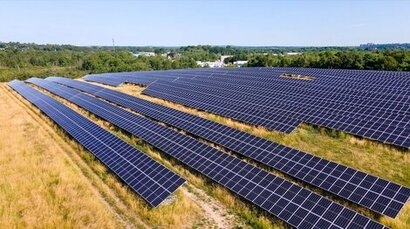The development and use of renewable energy and research application will be key in the years ahead.

Breakthrough plastics waste to hydrogen trial launched by Oxford and Cardiff Universities
Researchers from the Universities of Oxford and Cardiff are working with CarbonMeta Research Ltd to turn plastics waste into clean hydrogen fuel and high-value carbon nanomaterials.
CarbonMeta Technologies is commercialising breakthrough technology from the University of Oxford called ‘microwave catalysis’. The company is making plans to process waste plastic at scale in custom-designed microwave machines which will yield high value products for industry.
One metric ton of plastic mixed with 200 kg of iron powder catalyst can selectively produce enough hydrogen to heat approximately 200 homes, and can yield 900 kg of graphite and carbon nanotubes, which can be used to build battery technology for powering electric vehicles.
Transforming one ton of plastic using the technology can on average take two hours, with the material reaching temperatures of up to 600 degrees Celsius.
The company is forging commercial partnerships to up-scale this technology, including global multi-energy providers in Europe. Its latest initiative is an assessment project in Spain, which will analyse how differing combinations of mixed plastics waste perform in the new process, and how to generate the most substantial yields.

Winter Maintenance Tips for Solar Panels
While solar panels are a relatively low-maintenance part of your home for most of the year, they need a little extra attention during the winter. Here’s how to keep your solar system healthy throughout the colder months.

The City of South Portland in Maine, USA, is celebrating the completion of a 4.7 megawatt (MW) solar array, located on top of the City’s capped landfill, which will generate an estimated 5.8 million kilowatt (kW) hours of renewable energy each year.
The solar farm will also generate 63 percent of the city’s municipal electric load and displace 4,100 metric tons of annual carbon emissions, according to EPA statistics. In total, more than 80 percent of the City’s municipal electric load will now be offset by solar.
The three-phase project began in 2017 with a 1016 kW (DC) array, which was, at that time, the largest municipal solar project in Maine. In 2022, the expansion of ‘Landfill East’ and addition of ‘Landfill West’ added 474 kW (DC) and 3,251 kW (DC) to the total project. Currently, these combined solar projects have the largest power potential of any solar array built on a municipal landfill in the state, according to Maine DEP.

